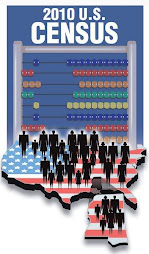The Clarion Ledger featured an article by Lydia Quarles regarding post-Census 2010 processes, mainly reapportionment. For the full story, click here.
Reapportionment: 101
After 2010 Census, process begins to divide congressional seats and redraw legislative districts for 2011
As we move into the latter half of 2008, the politicos among us begin to think ahead to reapportionment and redistricting. How has the nation's population migration of the last decade affected the shape and contour of the United States Congress? Will Mississippi lose another seat? And if so, why?
While congressional realignment - the apportioning of the 385 available U. S. congressional seats among the 50 states - is the fodder of reapportionment, local variations in population contribute to a need for redistricting of state houses.
In Mississippi, we need merely think back over the past decade to Katrina migrations, lost manufacturing jobs, new economic growth around Lee County and the Golden Triangle, and the extensive growth in DeSoto County and contiguous areas to recognize that the 2010 census results may cause significant realignment in Mississippi's Senate and House districts. Will coastal representation be diminished? How many seats will be added to northwest Mississippi? Will southwest Mississippi's districts be enlarged, shifted, and numerically reduced in order to account for other population growth and shifts?
Until 1962, the judicial branch of government had steadfastly removed itself from intervention in what it considered a "political question." But in the 1962 landmark case of Baker v. Carr, the U.S. Supreme Court abandoned its historic policy against intervening in congressional reapportionment and state legislative redistricting. The court abandoned its deference to the legislative branch in the resolution of such questions by recognizing that "every voter has a right to have his vote counted equally with every other voter's" and determined that this right was a justiciable cause of action covered by the equal protection clause of the 14th Amendment to the U.S. Constitution.
Subscribe to:
Post Comments (Atom)

No comments:
Post a Comment